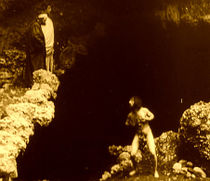Template:Pictorial-Islam-options: Difference between revisions
| [checked revision] | [checked revision] |
mNo edit summary |
mNo edit summary |
||
| Line 1: | Line 1: | ||
<noinclude>Also see: [[Template:Pictorial-Islam]]</noinclude><!-- HELP NOTES: Each option tag handles one random story --><choose> | <noinclude>Also see: [[Template:Pictorial-Islam]]</noinclude><!-- HELP NOTES: Each option tag handles one random story --><choose> | ||
<option weight="1">{{Pictorial-Islam|1=Qur'an Predicted Land Decreasing|2=[[File:Pangaea continents.svg.png|155px|link=Quran Predicted Land Decreasing]]|3=Dr. Al Zeiny, PhD, claims a so-called ‘proof’ of Qur'anic Science by positing the proposition that the Qur'an correctly predicted the geological fact that land is decreasing due to the movements of tectonic plates. He cites verses 13:41 and 21:44 as evidence. | |||
The geological facts do not support Dr. Zeiny's case that land is decreasing as the Qur'an supposedly suggests. In fact, they prove that land is increasing. Thus the geological information contained in the Qur'an is in error. | |||
Land has not been decreasing at all over the past billion years. At present 29.1% of the total earth’s surface area is land. However, by the end of the Permian Period 200 million years ago, the supercontinent Pangaea covered only about a quarter of the earth’s surface. ([[Quran Predicted Land Decreasing|''read more'']])}}</option> | |||
Revision as of 20:01, 7 February 2014
Also see: Template:Pictorial-Islam
|
